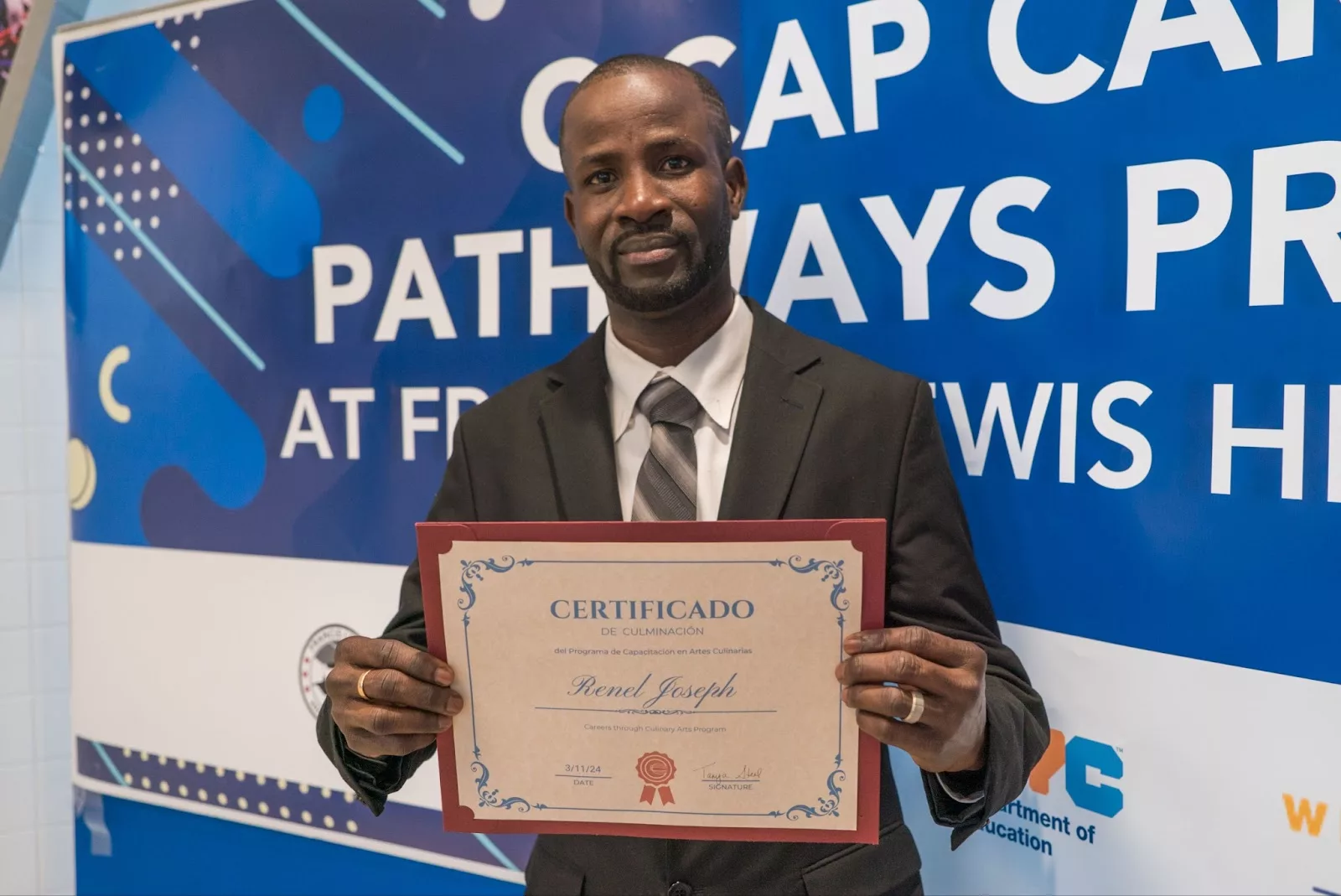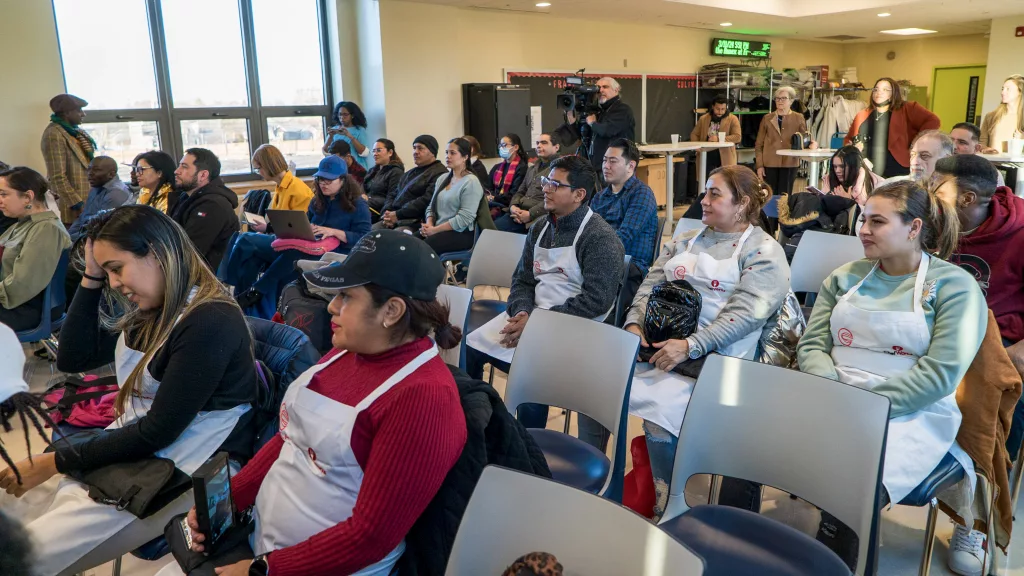The cohort of ten migrant students had been gathering at the kitchen inside Francis Lewis High School in Queens since February. After fastening their white aprons, each week they would practice the differences between dicing and julienning, tempering and deglazing, among other culinary skills.
On Monday, after five weeks of five-hour trainings, five days a week, they graduated with a New York City Food Handler’s License certification. The training is provided under Careers through Culinary Arts Programs (C-CAP), which received a grant from New York State’s Department of Labor to provide 50 asylum seekers in five cohorts with the necessary skills and certifications for working in the food service industry.
The program began as part of Gov. Kathy Hochul’s statewide initiative last October to help the 64,000 asylum seekers under the city’s care find employment. “By connecting work-eligible individuals with jobs and opportunity in New York, we can solve them both and secure a brighter future for all New Yorkers,” Gov. Hochul stated in the press release, adding that 18,000 jobs are currently available to asylum seekers and migrants.
Also Read: Job Training Resources for Immigrants in New York
Monday’s graduating class featured students from countries including Haiti, Colombia, Venezuela and Nicaragua. Some of the migrants had been in New York for more than 25 years, while others arrived three months ago.
The program takes place in Queens and is taught in Spanish with some English terms to familiarize the students with their future workplace, said Morgan Phillips, a spokesperson for the C-CAP program. It is open to eligible asylum seekers who already have their work permits and are interested in learning culinary skills to enter the industry.
During the five-week program, professional chefs train a small class of students to master commercial food preparation, including baking, food service management and other necessary skills for entry-level positions at restaurants. Graduates told Documented in addition to the program’s training, the certification helps them land interviews with prospective employers.
“This program is super helpful for us migrants because it helps us look for work easier, especially if we have a certificate,” Renel Joseph, 37, said.
Joseph arrived in New York eight months ago after emigrating from Haiti to seek asylum. In New York, he settled in Brooklyn while he waited for his Employment Authorization Document (EAD) to arrive, a document required to work in the United States. He heard about the C-CAP program through a friend who told him to apply online. And while the commute from Brooklyn to Queens took more than an hour, he said it was worth it because it gave him more tools to seek employment.

“When someone does not have their documents it is very difficult [to find a job]. But when someone has a document it is easier, and even easier if they have a certificate,” Joseph said, who recommended anyone interested in the hospitality industry to apply.
Karen Burke, a spokesperson for the NYSDOL, said that the state has worked with nearly 6,000 individuals to start connecting them to employment opportunities. “We have hosted 16 career fairs, which nearly 900 asylum seekers have attended,” Burke said, adding that “successful job placements have occurred as a direct result of hiring events, job search assistance and job referrals.”
Vicky Espinoza, 23, who migrated from Nicaragua three months ago through the humanitarian parole program also said having the C-CAP certificate was necessary for finding better work opportunities. “It is not the same to start a job with a license versus without a license, or without documents, the treatment is not the same,” she said.
While attending ESL classes with her aunt at the Queens Public Library, she said she picked up a pamphlet about the program. They both applied online and were accepted shortly after. Aside from the certification to handle food that they receive, Espinoza said the program also provides them with a recommendation letter. “It is not guaranteed that you will get a job, but it does help to have someone’s recommendation during the interview.”

C-CAP co-chairs Chef Marcus Samuelsson and Jeff B. Samuels were present at the ceremony and gave a welcoming speech to the graduating cohort. Samuels said that more than half of the class had been hired to fill positions offered by the Restaurant Associates Corporation. He also welcomed the second cohort of ten new students who were in attendance at the graduation.
For Espinoza, the program has already been beneficial. She was recently hired at a restaurant after obtaining her food handling certification through the program. “It is not easy because I am still learning English and the restaurant is a very fast paced environment, but I would not have had this opportunity if it wasn’t because of the program.”
The next cohorts will start in April, May and June. Those interested can apply here.
Correction March 15, 2024: An earlier version of this story misstated the duration of the class. The actual duration of the class if five hours a day, five days a week, and the total duration of the program for each cohort is five weeks. We apologize for the error.





